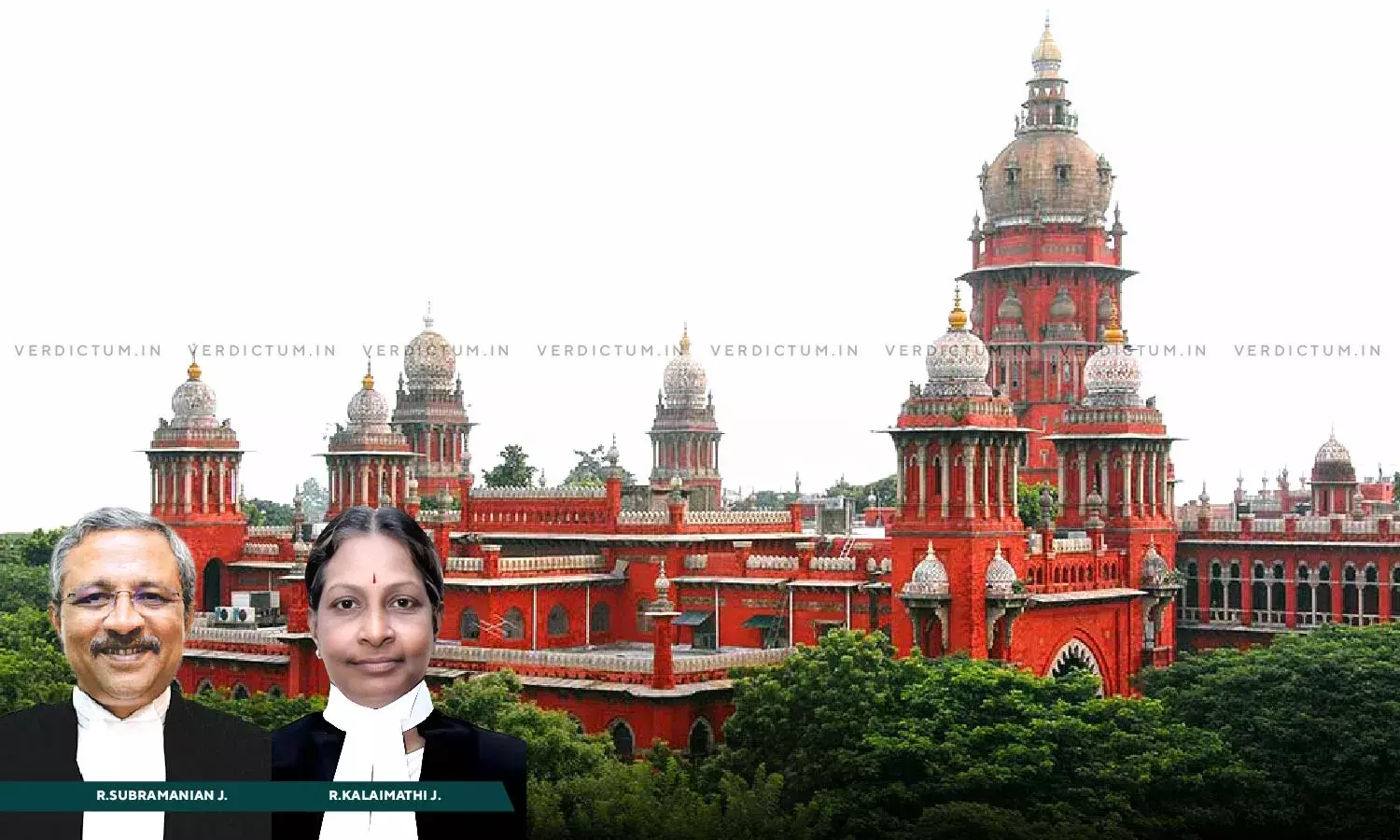Invocation Of Section 92 CPC Not Restricted Only In Case Of Breach Of Trust And Can Also Be Invoked If A Direction Of Court Is Deemed Necessary: Madras HC

While clarifying that the application/suit under Section 92 seeking permission to sell Trust property would be maintainable under Section 92(1)(f) of the Code of Civil Procedure, the Madras High Court explained that in the light of the language of Section 92 of CPC, where it permits the Trustees to move the Court in case where a direction of the Court is deemed necessary for administration of the Trust, the same includes within its sweep the matters which are not contentious also.
Disagreeing with the opinion of Justice V. Parthiban rendered in A.No.3671 of 2021 in C.S.D.No.80696 of 2021, the High Court expressed that Section 92 CPC can be invoked not only in a case where there is an alleged breach of trust, as the provision contemplate an application by the Trust or the Trustees without there being an allegation of breach of trust.
A Division Judge Bench of Justice R. Subramanian and Justice R. Kalaimathi observed that “A reading of Section 92 of the Code of Civil Procedure would show that the intendment of the legislature is to provide for a machinery to effectively deal with or to regulate the affairs of a Public Charitable Trusts. The first part of the Section provides for two contingencies i) alleged breach of trust or ii) where a direction of the Court is deemed necessary for administration of such Trust. The word used is 'or' and not 'and'. Therefore, invocation of Section 92 is not restricted only in cases where there is a breach of trust. It can be invoked either in case where there is a breach of trust or where a direction of the Court is deemed necessary”.
Advocate N. Umapathi appeared for the Petitioner, whereas Advocate T.K.S. Gandhi appeared for the Respondents.
The Brief facts of the case were that the Petitioners are Public Charitable Trusts and wanted to sell trust properties. The Petitioners were however restricted from doing so. Consequently, the original petition was filed under Section 34 of the Indian Trust Act, 1882, seeking permission to sell trust properties with the contention that these petitions are maintainable only under Section 34 of the Indian Trusts Act read with Section 7 of the Charitable and Religious Trusts Act. On Writ, the Single Judge Bench found that there is a sharp inconsistency between certain judgments which is irreconcilable and requires consideration with the contention that these petitions are maintainable only under Section 34 of the Indian Trusts Act read with Section 7 of the Charitable and Religious Trusts Act, 1920. Hence, the case is represented before the High Court for consideration by the Division Judge Bench.
After considering the submission, the Bench noted that before deliberating further on this issue, it would be useful to extract the very provision (Section 92 of the Code of Civil Procedure).
The Bench stated by the plain reading of Section 92 that the intendment of the legislature is to provide for a machinery to effectively deal with or to regulate the affairs of a Public Charitable Trust.
“Invocation of Section 92 is not restricted only in cases where there is a breach of trust. It can be invoked either in case where there is a breach of trust or where a direction of the Court is deemed necessary”, added the Bench.
The Bench also pointed that Section 7 of the Charitable and Religious Trusts Act, 1920 empowers the Trustees to seek opinion, advice, or direction from the Court on any question affecting the management or administration of the Trust property.
The Bench further stated that invocation of Section 34 in matters relating to Public Charitable Trust is impermissible.
By referring to the Apex Court judgment in the cases of Sheik Abdul Kayum Vs. Mulla Alibhai and Trustees of HEH The Nizam's Pilgrimage Money Trust, Hyderabad Vs. Commissioner of Income Tax, A.P, Hyderabad, the Bench reiterated that the power under Section 34 is intended to deal with the question that is capable of proceeding with any summary proceedings and not questions of detail, difficulty, or importance.
“In the light of the language of Section 92 of the Code of Civil Procedure, where it permits the Trustees to move the Court in case where a direction of the Court is deemed necessary for administration of the Trust and it includes within its sweep the matters which are not contentious also, the court found that the narrow interpretation sought to be placed on its provision by the run counter to the settled position of law and as such we are unable to approve of the same”, added the Bench.
The Bench further added that the practice of the Court to entertain the application or the suits under Section 92 with a prayer for the sale of the property in terms of Section 92(1)(f) for a considerably long time now and any deviation from such procedure, may not augur well for the Institution as such.
Accordingly, the High Court disposed of the case while directing the Registry to re-file all applications under Section 92 of the Code of Civil Procedure.
Cause Title: M/s. A.R.R. Charitable Trust and Ors. v. Amrita Vishwa Vidyapeetham and Anr. [O.P.Nos.211, 252 and 183 of 2023]
Click here to read/ download the Order

